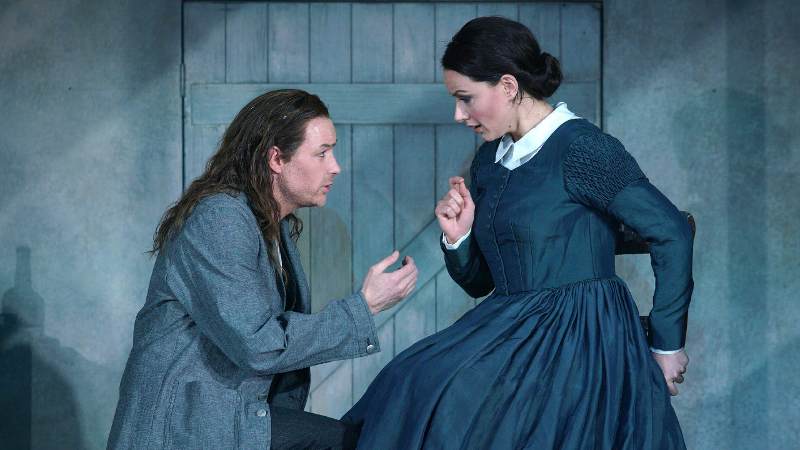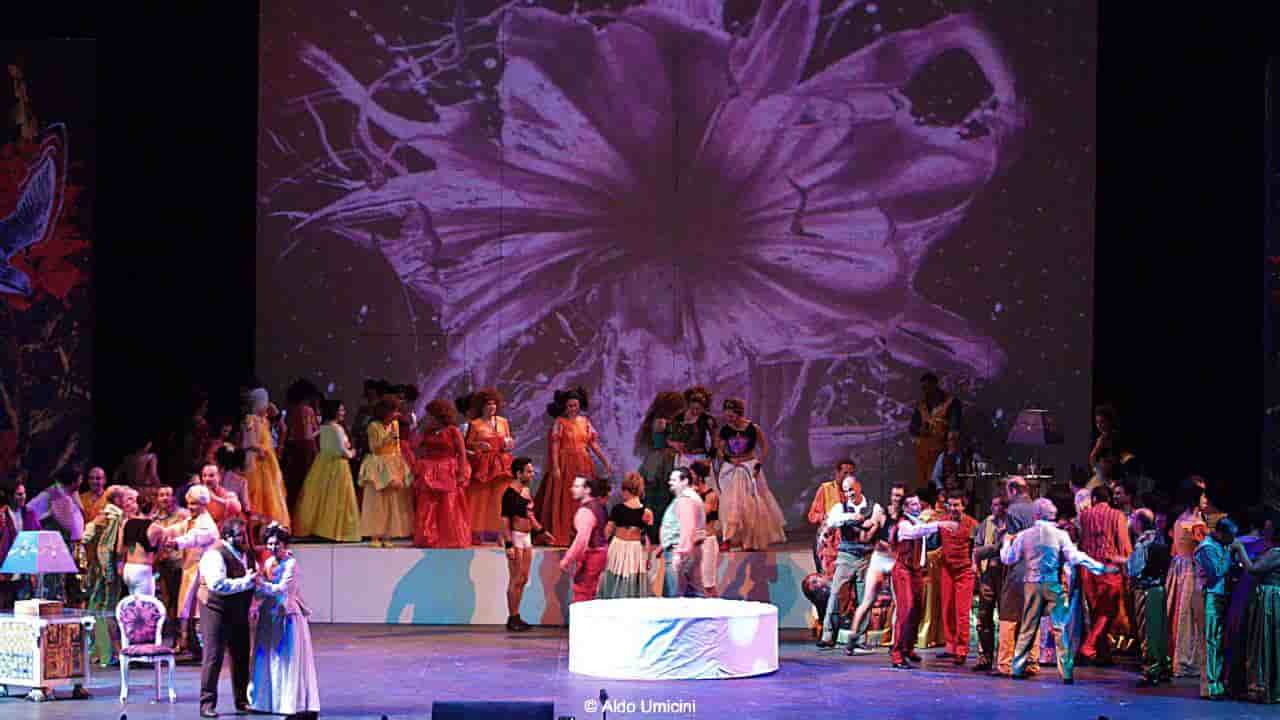On July the 21st at 19:30, live.
The Japanese civil code of 1898 – the Horei– established a legal framework which governed diverse aspects of public life as part of the libretto of Madama Butterfly. These include marriage, family rejection, divorce, or adoption. Imperialism, mixed race, and xenophobia are also elements of a narrative harness which navigates the well-mannered and acquiescent Oriental clichés of the preceding century while integrating the story of Cio-Cio San in a few coordinates of realism.
The finesse of Puccini’s score - in whose music authentic Japanese melodies resonate: «Izuki Uta», «Echigo-Jishi», «Sakurá», «Miyasan, Miyasan» or the Japanese national anthem «Kimi ga yo»– softens the edges of the drama without dismissing its tragic and sordid base, to construct what is probably the composer’s most well-done and profound feminine portrait. Along this line, Damiano Michieletto moves the action to a modern marginal neighbourhood of a big Asian city as a denunciation of a reality - sexual tourism - which lies at the heart of this iconic opera.
This livestream is only available for suscribers.
Tragedia giapponese in three acts
Music by Giacomo Puccini (1858-1924)
Libretto by Giuseppe Giacosa and Luigi Illica, based on the theatre play Madama Butterfly, by David Belasco, inspired at the same time, by a story written by John Luther Long
Premiere at Teatro alla Scala in Milan on 17 February 1904
Premiere at the Teatro Real on 20 November 1907
Production from Teatro Regio Torino
Teatro Real Chorus and Orchestra
Artistic team
Conductor: Nicola Luisotti
Stage direction: Damiano Michieletto
Set design: Paolo Fantin
Costumes: Carla Teti
Lighting: Marco Filibeck
Chorus master: José Luis Basso
A tribute to Victoria de los Ángeles (1923-2005) in commemoration of the centenary of her birth (1 November 1923)




